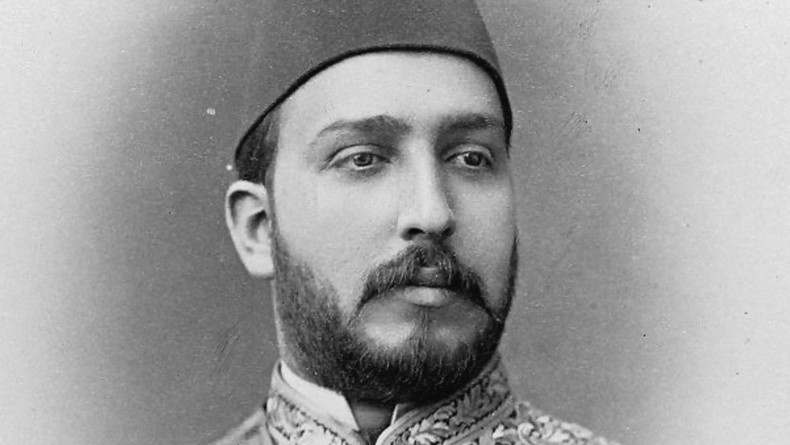Mohamed Tewfik Pasha (Arabic: محمد توفيق باشا), also known as Tawfiq of Egypt, was the khedive of Egypt and the Sudan from 1879 to 1892. He was the sixth ruler of the Muhammad Ali Dynasty. When he took over, he inherited a state that was suffering from financial and political mismanagement under his predecessor Isma'il. There was discontent in the Egyptian army, and the state was under Anglo-French control in the 1880s, which led to the anti-foreign Urabi revolt. Tewfik was also involved in matters related to irrigation, education, and justice, and he made changes such as selling his father's female slaves and closing the court's harem quarters.
Life
He was the oldest son of Khedive Isma'il, born on April 30 or November 15, 1852. His mother was Princess Shafaq Nur Hanim. Unlike his younger brothers, he did not receive an education in Europe but grew up in Egypt. He was fluent in French and English.
In 1866, Isma'il succeeded in changing the order of succession to the Khedivate of Egypt. The title now passed from father to son instead of the oldest living male descendant of Muhammad Ali. This change was mainly due to Ismail's dislike of his uncle, Halim Pasha, who was his heir-presumptive. Ismail had hoped to be able to choose any of his sons as his successor, but the Great Powers (Britain, Germany, Austria-Hungary, and the Ottoman Empire) interpreted the new arrangement to apply strictly to the eldest son. Therefore, Tewfik became heir-apparent. He was given a palace near Cairo to live in and for twelve years led an uneventful life, farming and establishing a reputation for good sense and fair dealing with his fellow tenants.
In Cairo on 15 January 1873, he married Princess Emina Ilhamy (Constantinople, 24 May 1858 – Bebek, Istanbul, 19 June 1931), daughter of Prince Ibrahim al-Hami and Parlanta Qadin.
Presidency
In 1878, he was appointed president of the council after the dismissal of Nubar Pasha. He held this office for only a few months, but it was long enough to show that he had the wisdom to refrain from taking part in the intrigues which then dominated the political life in Egypt and Sudan.
He went back to his estate and settled down once more to a quiet country life. He was undisturbed for only a short time. On 26 June 1879, Isma'il was deposed by Sultan Abdul Hamid II at the insistence of Britain and France, who sent orders at the same time that Tewfik should be proclaimed Khedive.
